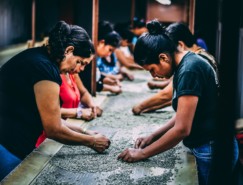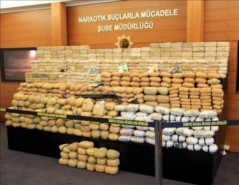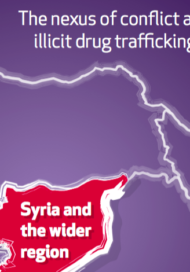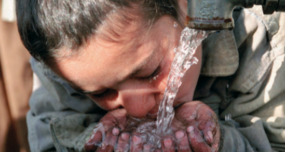Posted on 04 Feb 2016
Treating organized crime and corruption as a ‘cancer’ or a ‘virus’ has become shorthand in international policy circles, a diagnosis that is used to explain how countries as diverse as Mali, Ukraine or Mexico have fallen under the influence of criminal rackets that exercise control over certain state bodies, politicians, judges, police forces or territory.
The symptoms of this criminal presence are notorious. Extreme violence, coercive and predatory public administration, judicial impunity, economic distortions, and even a broad cultural tolerance of the coveted criminal lifestyle are among the effects that are manifested in numerous affected states.
However, the notion that institutional capture occurs due to an external criminal force is – despite its persuasive rhetoric – gravely mistaken. For various reasons, illicit activity has become part of the living organism of many countries’ public and business affairs. It must be treated not as a foreign body, but as a marriage, an integral part of governance and economic systems, and it is essential that policy responses are adapted to this reality.
Organized crime has undergone fundamental changes in size and shape over the past two to three decades. In its initial 20th-century form, organized crime was synonymous with an underworld of mafias, gangsters and racketeers. As a result, it was regarded in the West primarily as an issue for police and the courts. Since the end of the Cold War, criminal activity with its influence on state-building, human security and economic development has become a matter of acute concern in post-communist countries and, more generally, in a number of fragile and conflict-affected states. However, organized crime in its latest manifestations, for instance in Ukraine or Guatemala, appears to have taken yet another turn. In short, it has become a systemic part of governance: a constant resource for politicians and officials, which in certain circumstances can trigger mass public discontent and even political instability. Crime has moved from being a cause of prosecution to a pretext for revolution.
In a new publication, Global Initiative network member Ivan Briscoe with Pamela Kalkman, of the Clingendael Institute, seeks to explain how these changes in criminal patterns and effects have occurred, and what might be done to respond to them in a way that would emphasize the protection of democracy, good governance and human welfare. His analysis establishes how crime has become central to the degradation of various ‘third wave’ democracies, particularly in countries in Central America, West Africa and the Sahel; how it has driven popular uprisings, in countries affected by the Arab Spring, as well as Ukraine and various states of Latin America; and how extremist movements, such as jihadist groups, regularly exploit public disgust with the corruption and venality of their local political systems.
Illicit activity has become progressively more embedded in societies and in states, and this presence neuters efforts to coordinate international campaigns against corruption and crime. The paper traces the routes through which democratic politicians have sought to take advantage of crime; and, vice versa, the ways in which criminal actors have captured parts of the state or targeted lucrative public sector transactions for financial gain, above all in the area of public procurement. Through this active complicity on both sides, illicit activity has been able to merge with a fast-evolving international system of financial and legal transactions. It is in this context that a number of informal governance arrangements have become hosts to rife fraudulent activity – as the recent case of FIFA has revealed.
Rethinking responses to criminal powers
In response, the paper identifies strategic areas for future interventions, whether by affected states, donor governments or multilateral institutions. It stresses the need for broader civil society engagement in dealing with criminal influence, while acknowledging the dangers that are posed by communities’ complicity with illicit activity, or the threat of violent criminal retribution. Stricter regulation of democratic political life is flagged as an essential part of efforts to protect democracy, although this also depends on the existence of local judicial systems that are able to act on cases of high-level criminal collusion and corruption. This judicial response in turn requires the designs of systems for investigation and prosecution that do not make impossibly burdensome demands on the limited resources and questionable political will of developing countries. So far, there has been a glaring absence of any efforts to design economical and realistic means of controlling high-level crime.
Lastly, the paper raises the possibility of recasting the way the multilateral system addresses organized crime, above all through root-and-branch reform of the main body dedicated to the issue – the United Nations Office on Drugs and Crime (UNODC). The essential spirit of such an enterprise would be to broaden participation, allow for honest criticism of the way states behave, and extend the range of issues that this body addresses in order to encompass the modern reality of crime: not a virus, but a very real part of many governments, societies and economies.



